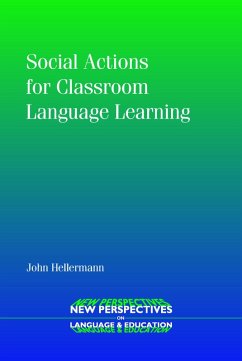
Rethinking Language and Culture in Japanese Education (eBook, ePUB)
Beyond the Standard
Redaktion: Sato, Shinji; Doerr, Neriko Musha

PAYBACK Punkte
9 °P sammeln!
How does language or culture come to be standardized to the degree that it is considered 'homogeneous'? How does teaching language relate to such standardization processes? How can teaching be mindful of the standardization processes that potentially involve power relations? Focusing on the case of Japanese, which is often viewed as homogenous in terms of language and culture, this volume explores these questions in a wide range of contexts: the notions of translation and modernity, the ideologies of the standardization of regional dialects in Japan, current practices in college Japanese-as-a-...
How does language or culture come to be standardized to the degree that it is considered 'homogeneous'? How does teaching language relate to such standardization processes? How can teaching be mindful of the standardization processes that potentially involve power relations? Focusing on the case of Japanese, which is often viewed as homogenous in terms of language and culture, this volume explores these questions in a wide range of contexts: the notions of translation and modernity, the ideologies of the standardization of regional dialects in Japan, current practices in college Japanese-as-a- Foreign-Language classrooms in the United States, discourses in journals of Japanese language education, and classroom practices in nursery and primary schools in Japan. This volume's investigation of standardization processes of Japanese language and culture addresses the intersections of theoretical and practical concerns of researchers and educators that are often overlooked.
Dieser Download kann aus rechtlichen Gründen nur mit Rechnungsadresse in A, D ausgeliefert werden.













